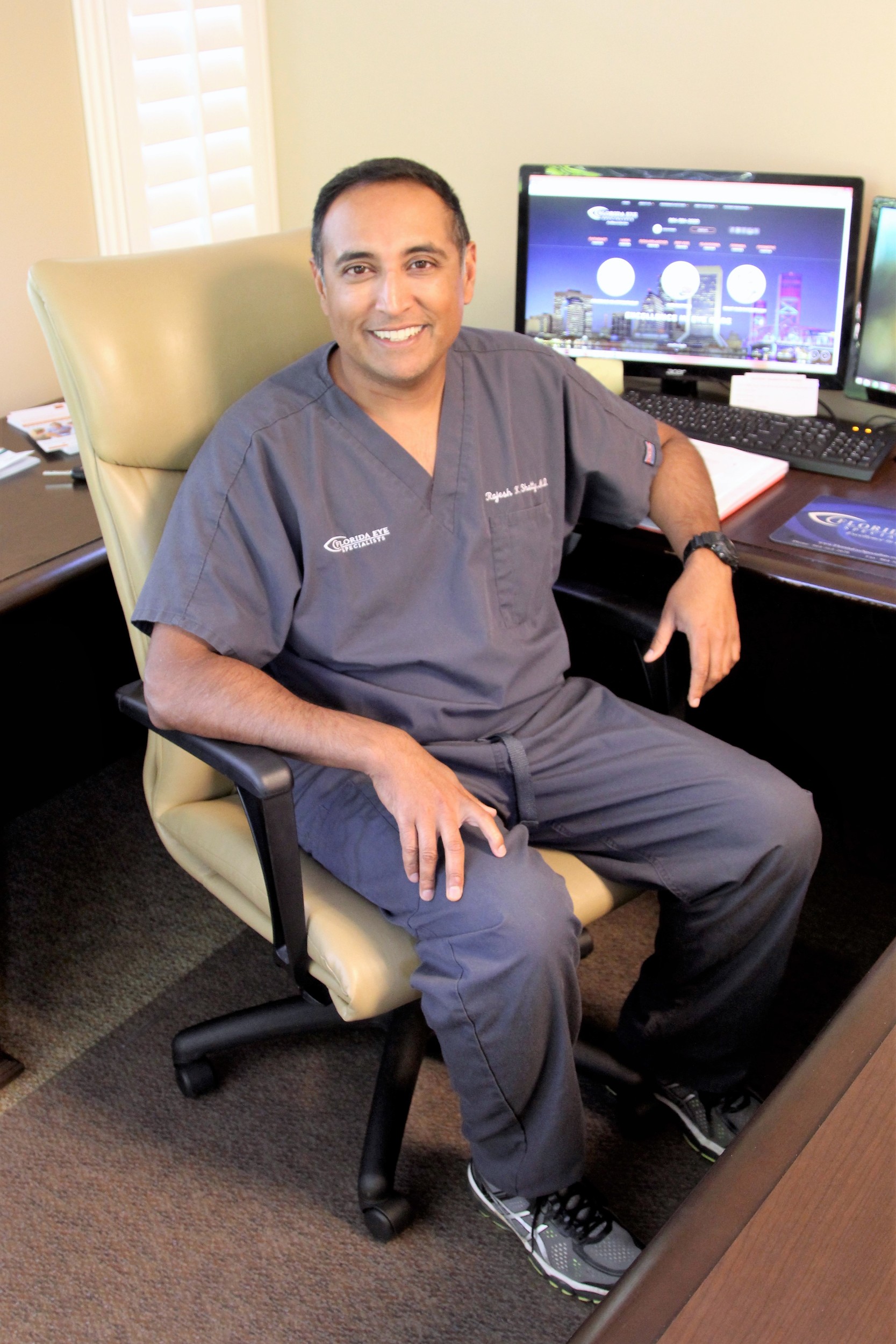One of Us: Dr. Rajesh Shetty
A board-certified ophthalmologist at Florida Eye Specialists, Dr. Rajesh Shetty specializes in cataract and glaucoma surgery. Prior to founding Florida Eye Specialists in 2009, he served on the clinical staff of the Mayo Clinic for seven years as an assistant professor in ophthalmology. He also previously served as chief of ophthalmology at St. Vincent’s Medical Center Southside.
What are some of the key services that Florida Eye Specialists provides?
Florida Eye Specialists is the largest multispecialty ophthalmology private practice in North Florida. I am proud of being one of eight board certified, fellowship trained doctors. Each doctor spent years specializing in LASIK, glaucoma, cosmetic lid surgery and cataract surgery. Most of our doctors are currently involved in eye research and most were former professors and staff from either the Mayo Clinic or University of Florida. All of the doctors are very knowledgeable and care about providing the best ethical care to our patients.
Your background includes dual degrees in finance and health care systems from the University of Pennsylvania’s renowned Wharton School of Business. What prompted you to move from the business side of health care to becoming an ophthalmologist?
Ophthalmology is an amazing field that drew my interest from early on in school. Eye surgeons have the unique ability to improve people’s lives almost instantly. We can preserve, restore and improve vision in most people with an impressive assortment of tools that constantly improve. The technology and preciseness of the surgery definitely appeals to me.
Every day, I still call upon the finance and administrative skills I learned at Wharton to improve our practice. Our goal is to marry the best in eye care providers to an outstanding delivery system to meet the goal of excellence in eye care for each of our patients. It’s challenging in our current environment that is ever changing, but the need for quality subspecialty eye care grows every day as our population ages.
You’ve been called a pioneer in cataract and glaucoma surgery. How have new technologies changed the way these conditions are treated?
Laser cataract surgery and more accurate measurements of the eye have revolutionized cataract surgery in the last three years. Our surgery center was the first in North Florida to acquire and use laser cataract technology, which provides safer, more precise eye surgery for our patients. By collaborating with our many top doctors, we are able to bring the best technology to the patient. In the next year, we plan to bring significant advances in minimally invasive glaucoma surgery for our glaucoma patients as well. Currently, we are involved in the FDA trials of the first novel glaucoma medication in 20 years.
What is the number one vision problem or procedure you’re seeing among patients today?
With more than 10,000 people turning 65 every day, cataract surgery is our number one surgical procedure. Over 3 million cataract surgeries are performed in the United States, and it’s one of the most rewarding and safe surgeries that we can provide. Most people know that cataract surgery improves vision and reduces one’s need for glasses, but it is also one of the most effective and safe methods to treat glaucoma.
What is the most challenging part of your job in providing eye care? The most rewarding?
The constant changes in medical regulations and insurance have made providing excellent eye care much more burdensome. As a third-generation physician, I have been exposed to the challenges of medical care for many decades, and currently I fear the dramatic reductions in Medicare reimbursement that are expected. Patients with severe diseases like glaucoma and macular degeneration are usually elderly and are at the most severe risk of losing access to treatment.
Despite these concerns, the rapid advances in technology have made the treatment and diagnosis of glaucoma and macular degeneration much more beneficial. We now can reverse the damage in macular degeneration and also catch glaucoma at a very early stage in which we can preserve vision.
Are you involved in any civic or charitable activities?
I am on the board of Vision Is Priceless, a very well-run organization that is dedicated to catching and preventing childhood vision loss, which in most cases can be treated if caught early enough. The doctors and community leaders involved are very active and dedicated. Early screening is vital, and this organization is critical in providing that service in our area.
How do you enjoy spending your free time?
Spending time with my family is my number one favorite pastime. My wife and our children enjoy traveling, boating and hiking. Our son is a Boy Scout, and I enjoy participating in his many adventures if he lets me. We love the amazing nature and waterways in our region and are involved in doing our part to preserve those resources.
Photo courtesy of Daigle Creative







